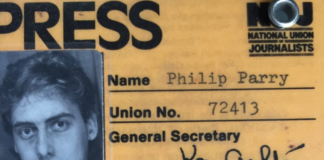- Bombs away! - 28th February 2026
- Massaging the truth - 27th February 2026
- ‘It’s the new economy, stupid…’ - 27th February 2026

During 23 years with the BBC, and a 41 year career (when he was trained to use clear and simple language, avoiding jargon), for our Editor, Welshman Phil Parry, extraordinary rows between important political figures which should be interpreted by journalists before they erupt into public view, have always played an important part, and this is now underlined by the fall out between Donald Trump and Elon Musk, as well as by the incredible resignation of the Reform UK chair.
It is up to people like us to explain what is going on, rather than simply reporting the row when it emerges into public view.
The rift between Donald Trump and Elon Musk was known about to insiders long before the acrimonious messages between them were posted on social media, and journalists should have been on top of this.

I like to think I was.
To blow my own trumpet a little, I long predicted they would squabble, but I didn’t think it would happen as soon as it did!
The parallels here with what happened between Boris Johnson and Dominic Cummings are very real, but I have yet to see them drawn, so let me remind you of them.
As with Mr Trump and Mr Musk, the pair were almost inseparable, but they split spectacularly, and only then was the rupture reported.
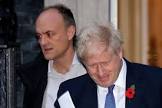
At the Downing Street Brexit night party, Mr Johnson hailed Mr Cummings as a “genius”.
One person at this party recalls: “A couple of other people were mentioned but this was the genius guy who delivered everything. For now the person Boris will turn to more than anyone else is Dom”.
However Mr Cummings left Downing Street after his relationship with the one time Prime Minister “fell off a cliff”, Sir David Davis, MP, has said.
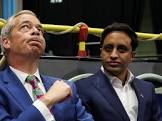
Mr Johnson then branded his former chief of staff as “weird” and compared him to a “homicidal robot“, blaming him for his downfall.
Another example is the extraordinary resignation of Zia Yusuf as Reform UK’s chairman.
After 11 months in the role, he declared yesterday that working to get the party elected was no longer “a good use of my time”, and we were told that, according to Nigel Farage he had “had enough” of politics.
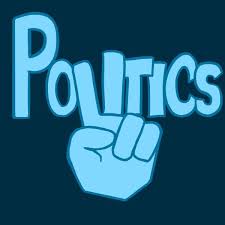

As far as a REAL explanation for what happened from the mainstream media, the most we have had is that Mr Yusuf said it was “dumb” for Reform UK’s newest MP to call for a ban on the burqa.
In fact it had been known that Mr Yusuf was uneasy about a number of Reform UK’s policies for some time.
But did we hear about this from the mainstream media? No.
Let’s look at other famous estrangements that were not reported until they burst into public view.
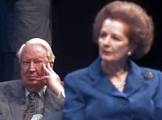
The one, for instance, between Margaret Thatcher and Ted Heath was known (later) as the incredible sulk on his part, because it lasted so long. It was only publicised, though, towards the end of the 25 years!
Mr Heath, who had a reputation for rudeness, didn’t even stand up when Mrs Thatcher visited his office to warn him politely of her intentions at the Conservative leadership election she contested.
“Very well then. You’ll lose!” were Mr Heath’s alleged words in response.

Yet he was wrong, and in a shock result she defeated him in the ballot of Tory MPs by 10 votes.
With Mr Heath out, four other losing individuals then stood against Mrs Thatcher in the second ballot.
However the momentum was all with Mrs Thatcher then.
“I’ve beaten five chaps! Now, let’s get to work”, she declared. She was the first woman ever to lead a major UK political party, and four years later, she won the 1979 General Election (GE) becoming the first woman Prime Minister.

Apart from this one, perhaps the most famous long-running dispute in politics (and again we didn’t hear about it at the time), is that between Tony Blair and Gordon Brown.
At first they were an election winning team, indeed one political analyst has proclaimed online: “Tony Blair and Gordon Brown are one of the most famous double-acts in contemporary British politics. Forging their close partnership during the 1980s inside the unsettled ranks of the disempowered Labour Party, they spearheaded a daring party reformation – which they dubbed “New Labour” – and led Labour back into office with a landslide victory in 1997. They proceeded to dominate the peak of British politics for the next thirteen years“.
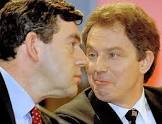
Yet the growing distance between the two undermined that domination, and Mr Brown said he would never forgive Mr Blair for not standing down as leader earlier than he did, according (so he said) to an agreement they had made.
They would apparently frequently scream at each other at the end of Mr Blair’s premiership, with their relationship likened to a “troubled marriage”.
If only we had known about these ‘troubles’ when they started instead of it going from a love in to suddenly hating each other.

We are told that Mr Trump may think Mr Musk “crazy” now, but how long has he thought that?!
The memories of Phil’s astonishing, decades long award-winning career in journalism (when rows between leading political figures were often witnessed), as he was gripped by the rare neurological disabling condition Hereditary Spastic Paraplegia (HSP), have been released in the book ‘A Good Story’. Order it now.










